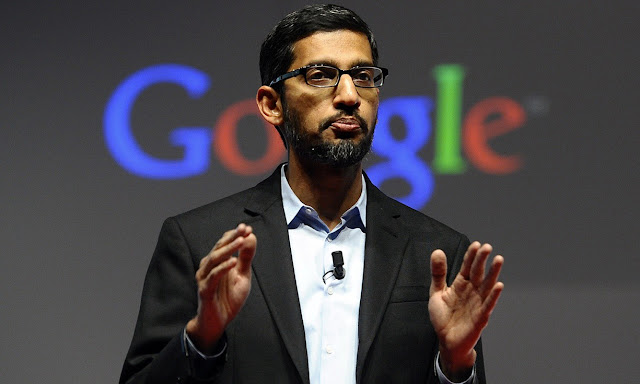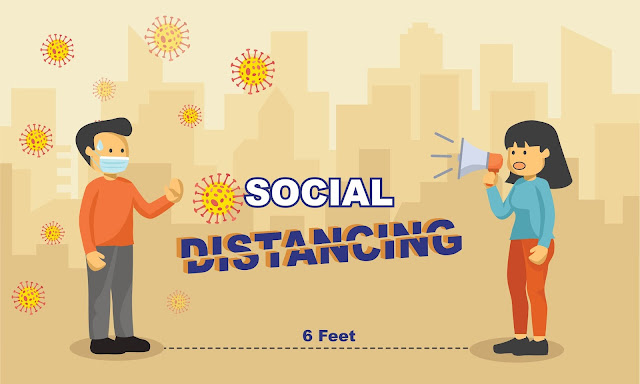Google CEO Sundar Pichai distributed an opinion piece on the Fox News site a week ago titled "American Small Business and Big Business Must Grow Together." In it he genuinely contends that enormous and little organizations need one another, and how Google is here to enable private companies to develop. Be that as it may, he's really saying that independent companies should use whatever number Google items as could be expected under the circumstances.
Regardless of whether those items and administrations cost nothing to the buyer, they're as yet rewarding for Google since they accompany promoting. They likewise give the organization an approach to accumulate considerably increasingly significant information about the individuals who utilize the items. So when Pichai expresses, "For us, the most recent two decades have demonstrated that huge organizations and private ventures can become together, particularly in the advanced economy," what he truly means is "We'd like to develop our enormous organization by offering more items to your little ones."

Try not to misunderstand me. I adore Google items - as a one-individual business, I utilize a ton of them myself. Furthermore, I have incredible of regard for Pichai, who has for the most part shown himself to be a capable pioneer for Google. In any case, he loses that regard when he meagerly masks an attempt to close the deal with flimflam like this: "Consistently a large number of independent ventures are making and building astonishing things- - and encountering indistinguishable developing agonies from we did. I accept bigger organizations like Google should assume a job in helping them.
Thinking profoundly about offering stuff to independent ventures is altogether different from thinking profoundly about private companies. Pichai assumes entrepreneurs can't differentiate, which is simply annoying.
Private companies reliably rank lower in Google look.

To figure out how Google truly feels about private ventures, think about how that tech behemoth treats them when it's doing whatever it takes not to sell them something. For example, when positioning independent companies in its market-ruling web crawler. Attempt this basic examination: Google any word or expression you can think of. Except if your hunt term is really the name of a little organization, or maybe its CEO, odds are that the top outcome will be the site of an enormous association, not a little one. The second and third top outcomes most likely will be too.
A year ago, Matt Bentley, author of SEO counseling firm Can I Rank led an investigation of quest rankings for 30,000 sites to perceive how Google positions little and enormous organizations in list items. The outcomes were demoralizing for private ventures. Bentley discovered Google search rankings have a worked in predisposition toward enormous organizations over little ones. Truth be told he found that only four immense associations - Amazon, Google, Wikipedia, and WebMD- - were tremendously overrepresented in top list items. He says this is on the grounds that huge names are increasingly conspicuous and that the human predisposition toward the unmistakable has been modified into Google's AI which positions list items. In spite of the fact that Bentley doesn't specify this, huge brand sites are probably going to have more inbound connections than little ones, and inbound connections especially lift search rankings.

How terrible is this worked in inclination toward enormous organizations? Bentley claims that only four sites - Wikipedia, Amazon, Google, and WebMD every now and again show up in the best three aftereffects of a Google search, while independent companies' sites don't come as of recently or third page of query items. Furthermore, Bentley says, in his experience, this propensity to support huge business' sites over private venture's ones is getting progressively articulated after some time.
Better substance doesn't help.
One normal recommendation to little organizations that need better positioning on Google is to add great substance to their sites, yet Bentley's exploration demonstrates this truly doesn't help. Indeed, he discovered one of his customers outranked by Amazon on the inquiry term "knead table" despite the fact that, at the time, Amazon had just one model and 200 expressions of jumbled substance about it plainly composed by a non-local English speaker. Interim, his customer, who had numerous models and a ton of helpful substance about back rub tables didn't show up until the second page of list items. "Put a similar bit of substance on a major brand site and an independent venture site and the huge brand will outrank inevitably. More terrible, put a vastly improved bit of substance on the little business site, and by and large the huge brand will even now win," he says.
"Google Products are helping small businesses to grow"






Comments
Post a Comment